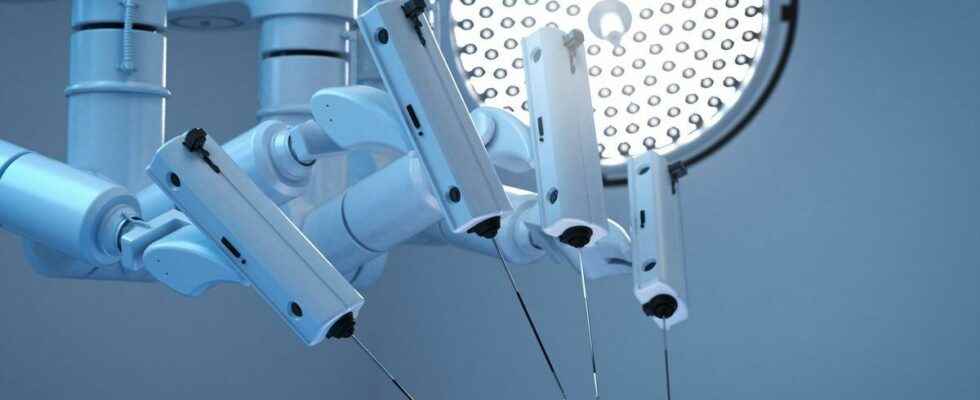Posted 14 hours ago,
Reading 2 mins.
Does the surgical technique used have consequences on the postoperative course of patients? To answer this question, researchers conducted a clinical study comparing two surgical techniques for bladder cancer.
In this clinical study, the objective of the researchers was to compare the post-operative follow-up during the 90 days following the operation, between patients who had been operated on using the classic (“open-air”) method and those operated on via robotic surgery. , in the context of bladder cancer.
A three-year study
Between March 2017 and March 2020, this work involved 29 surgeons from nine different UK hospitals. The researchers therefore collected data from 338 patients with non-metastatic bladder cancer, divided into two groups: 169 patients who underwent robot-assisted radical cystectomy with intracorporeal reconstruction, which is a process of removing a section of intestine to make a new bladder and 169 patients who underwent open radical cystectomy.
20% reduction in hospitalization
The scientists evaluated the postoperative course of the participants in each of the two groups. Their results show a greater improvement in the state of health and the postoperative course of patients who have been operated on by robotic surgery. On average, the researchers note, “the robot-operated group stayed in hospital for eight days, compared to 10 days for the open surgery group, a reduction of 20%. Hospital readmission within 90 days of surgery was also significantly reduced: 21% for the robot-assisted group versus 32% for the open group.”
Less 77% blood clots
About twenty criteria were thus evaluated at 3, 6 and 12 months after surgery, such as wound complications, endurance, disability or even cancer recurrence or the patient’s survival time. “All secondary outcomes improved by robot-assisted surgery or, if not improved, nearly equal to open surgery” say the researchers again.
One of the most amazing results concerns the prevalence of blood clots which would decrease by 77% in robot surgeries. For researchers, this has never been studied so far but “the positive effects of robotic surgery could impose it as the “gold standard” compared to conventional open surgery”.
Studies that have a bias
Asked about the question, Professor Michaël Peyromaure, head of the urology department at Cochin hospital, recognizes certain advantages to robotic surgery. “We know that this type of surgical technique reduces post-operative pain and ileus (stopping of intestinal peristalsis)” he explains.
While the robotic technique has undeniable benefits for the patient, it all depends on the operator as well. “A surgery that lasts 2 hours in the open will be better than a seven-hour surgery in a robot. The experience of the surgeon is therefore also an element to be taken into account when comparing surgical techniques, it is more complicated than comparing two drugs, for example” further exposes the specialist. “In addition, this type of surgery, which is performed head down for the patient, can create more complications in the most fragile than an open surgery and even more if it lasts a long time..
Finally, remember that bladder cancer affects about 10,000 people each year in the United Kingdom and 3,000 are operated on.
